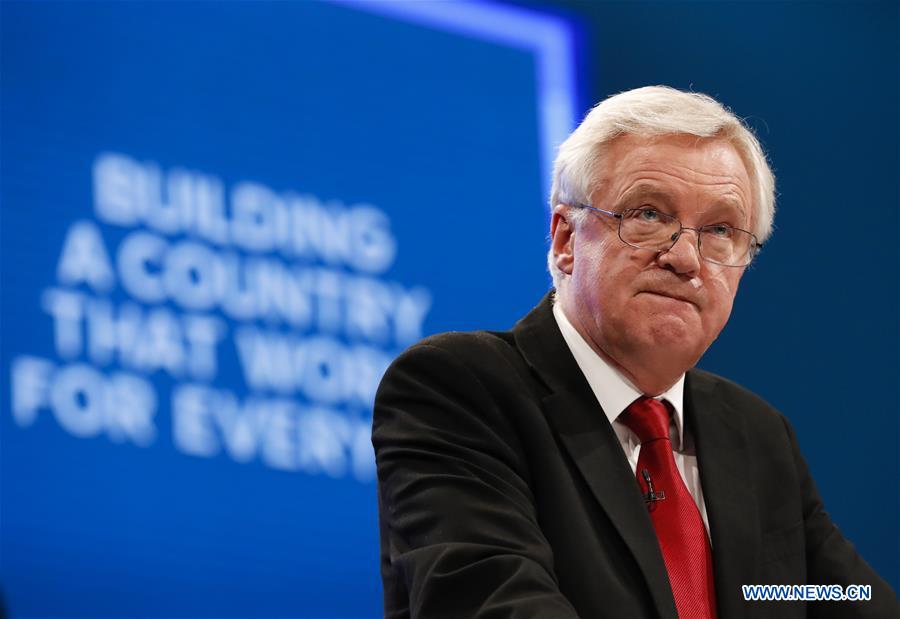EU's Brexit negotiators can't cherry-pick: UK minister
Xinhua | Updated: 2018-01-03 13:10

LONDON - Brexit minister David Davis said Tuesday negotiators in Brussels cannot cherry pick terms of a new trade deal with Britain.
Looking ahead to developments in 2018, Davis said his objective is that services can be traded across borders, from highly regulated sectors like financial services to modern ones such as artificial intelligence.
"Given the strength and breadth of our links, a deal which took in some areas of our economic relationship but not others would be, in the favored phrase of EU diplomats, cherry picking," Davis wrote in the Daily Telegraph.
In terms of scope, the final deal should, amongst other things, cover goods, agriculture and services, including financial services, and be supported by continued intelligent cooperation in highly-regulated areas such as transportation, energy and data, he wrote.
But Davis admitted that negotiations between both sides will continue this year to generate the "thunder and lightning" seen in 2017.
In his new year message Davis spelt out what the coming months will bring as Westminster and Brussels start talks on a new relationship between the UK and the EU.
Davis said he understood people saying that the first responsibility for proposing solutions to the conundrums presented by Brexit lie on the British side.
"But that does not mean that the process should be all one way. In my experience, the world sees Brexit as a European issue, not solely a British one," he added,
The negotiations about the future will not be straightforward, said Davis.
"They will generate the same public thunder and lightning that we have seen in the past year. But I believe they will be successful, because the future of the Europe continent is best served by strong and successful relationships," he wrote.
Davis acknowledged that people wanted to know more about Britain's future relationship with the EU.
He said: "The thirst for knowledge should not blind us from the areas where established positions already exist. Brexit will allow us to take control of our borders, our money and our laws. We will use the opportunity of an independent trade policy to strike deals with other countries from around the world.
"Our approach is simple: we are looking at the full sweep of economic cooperation that currently exists and determining how that can be maintained with the minimum additional barriers or friction, while returning control to the UK Parliament."
Davis added that with enough determination and flexibility a successful outcome can be found, without threatening the EU's most important priority, the integrity of the European single market.
























